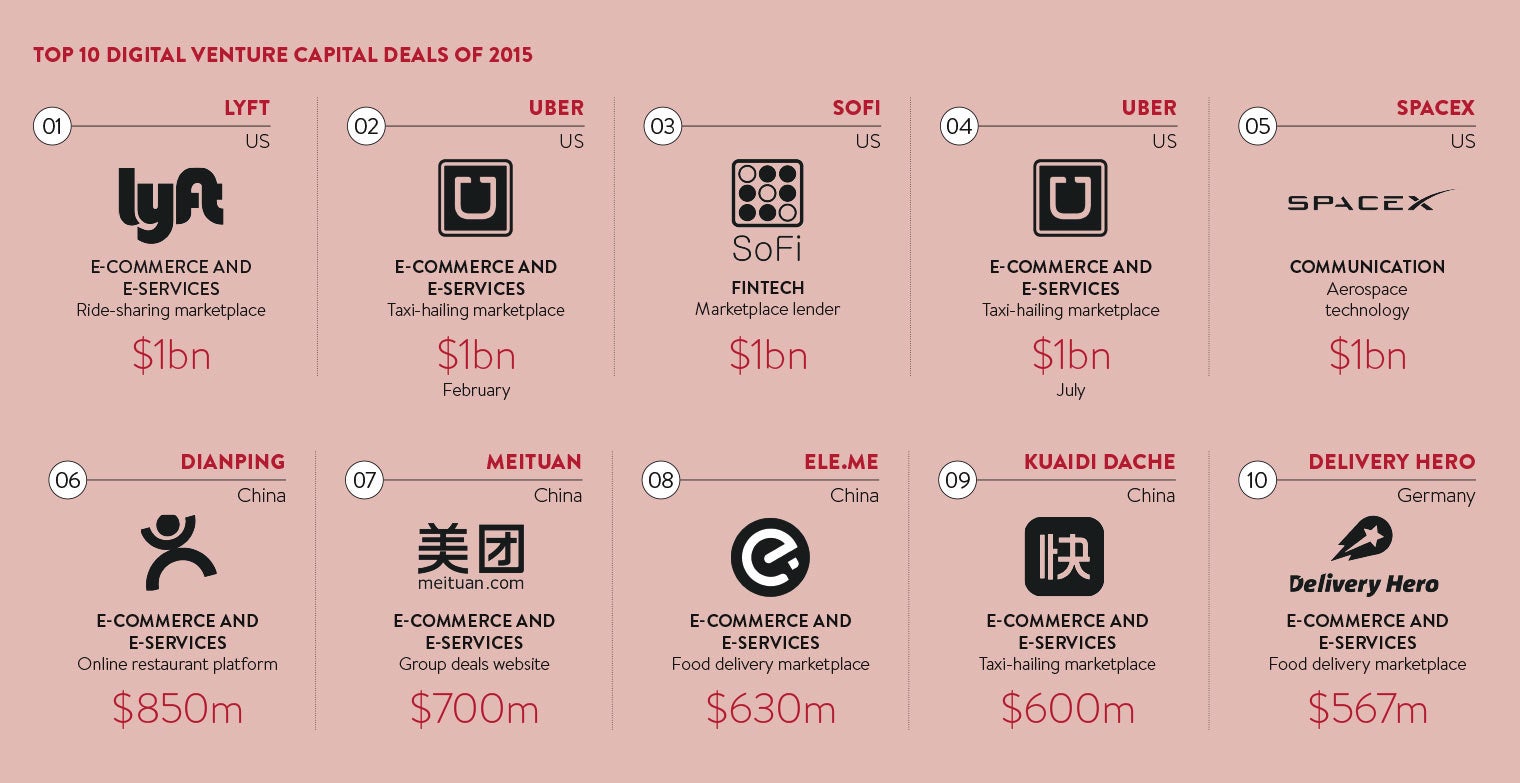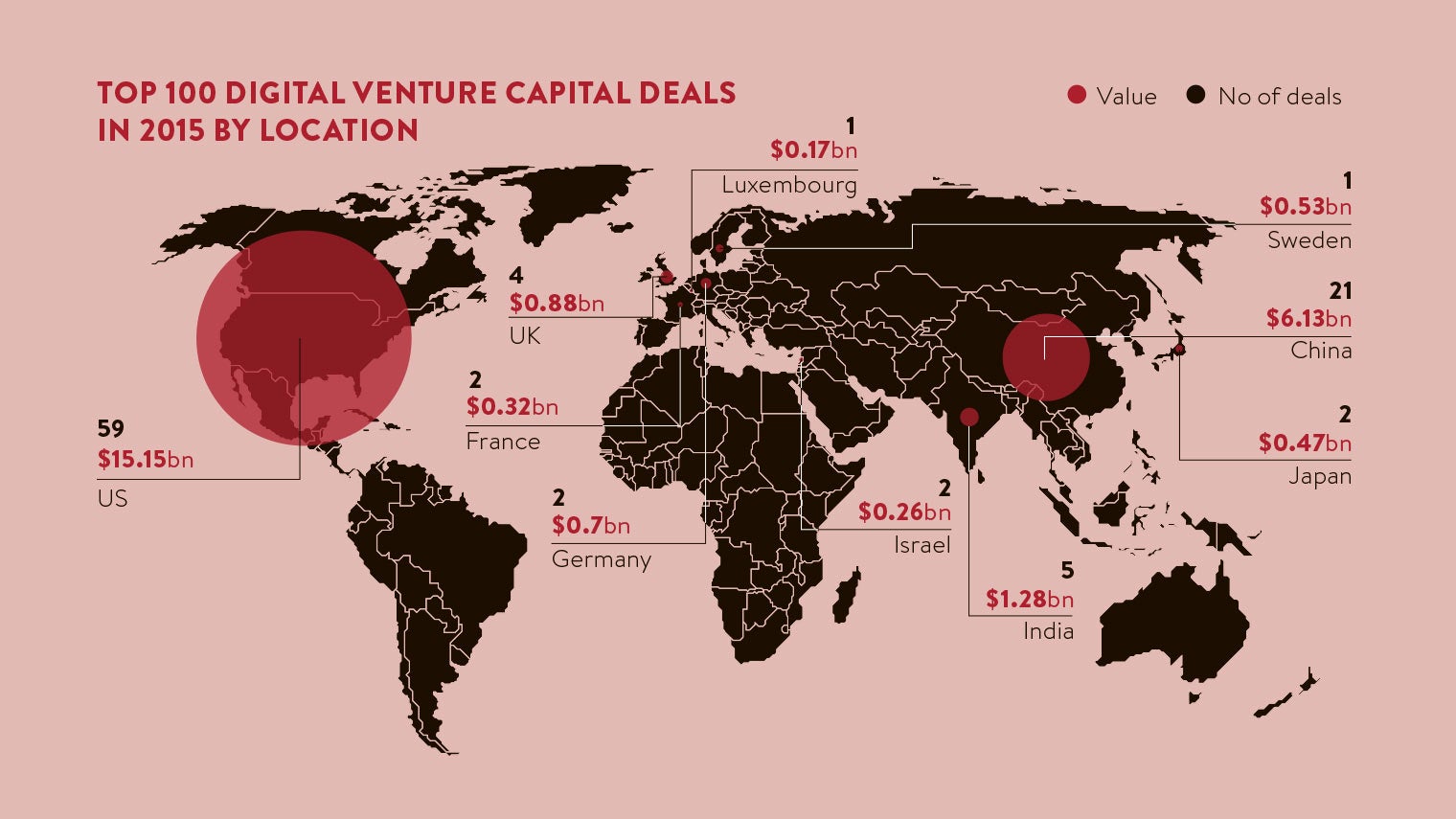Fintech
Last year analysts Pivotl iQ predicted an upswing in venture capital investment in financial technology, but didn’t expect quite such an explosion. Total investment hit $7.3 billion in 2015 compared with $4.1 billion the previous year. Investment in fintech is not about to stop, but unless a couple of astronomical bets come out of nowhere, don’t expect it to ratchet upwards at quite the same eye-watering rate. Consolidation will be a theme in 2016 and expect more mergers and acquisitions particularly in payments, which is the most mature, but also the most fragmented segment, in the fintech space. The burgeoning co-operation between startups and traditional banks that began in 2014 and grew more pronounced during 2015 will continue in 2016. Keep an eye out for challenger banks, such as Atom, Mondo and Number26, in this context. Finally, expect an influx of capital into startups looking to shake up the insurance industry. A lot of backing is likely to come from the corporate investment arms of insurance companies, as well as traditional venture capitalists.

E-commerce
Internet commerce is still evolving. And this is why venture capitalists continue to pour more money into it than virtually any other digital sector. E-commerce attracted almost $23 billion in investment last year, up from some $17 billion in 2014 on the back of major investments in online taxi, meal delivery and travel services. Having likely reached the ceiling when it comes to huge deals and hyper valuations in sectors such as ride-hailing, this pace of growth is unsustainable. There will also be a shift in the types of e-commerce models receiving backing. In the wake of the likes of Gilt Groupe and One Kings Lane being sold for much lower than the billion-dollar valuations they once flirted with, expect investor enthusiasm for flash sale sites to wane. Fashion will continue to attract interest, but also expect more investment in companies with innovative approaches to e-commerce logistics or deliveries – just don’t expect your shopping to be delivered by drone this year at least.
[infographic]
Virtual reality
VR or virtual reality evangelists seem to declare every year a watershed one for VR and they’re always proved wrong. But while we’re loath to label 2016 a breakthrough year for the technology, we do expect it to be an interesting one. This is because much of the activity will move from the testing studio into consumers’ hands, with a number of major products, such as Oculus Rift, hitting the shelves. From an investor perspective, this should increase activity as a number of startups scrabble to offer compelling content for the new devices. This doesn’t mean investment levels will necessarily hit a record level. Investment in VR and augmented reality startups reached $492 million in 2015, down some 30 per cent on the $706 million raised in 2014. But the 2014 total is almost entirely the result of Magic Leap, which took on nearly $600 million that year. In that context, 2015 was an encouraging year in investment terms and this appetite should continue this year.
[embed_related]
Internet of things
In 2015 the internet of things (IoT) was established as a concept that’s here to stay. But it is yet to come of age in terms of investment in a startup sense. Venture-capital investment actually dipped last year to $1.3 billion compared with $1.5 billion in 2014. Expect it to remain steady during 2016, and expect more and more devices to become connected to the internet, but don’t expect a lot of investment at a startup level in smart platforms. Consumers don’t care about the platforms and there are other elements of IoT software for startups to explore.

Drones
A feature of 2015, drones will be one of the topic areas that again dominate tech hype in 2016. Expect many more drone tests and lots of noise made about them, especially when one or more inevitably create high-profile incidents in the sky as they disrupt traditional flight paths. Venture-capital investment in drones hit $418 million last year, which is more than five times the $77 million invested in 2014. Investment will definitely increase again this year, particularly in startups addressing industrial use cases. Using drones in emergency response scenarios will become more commonplace.
Fintech






